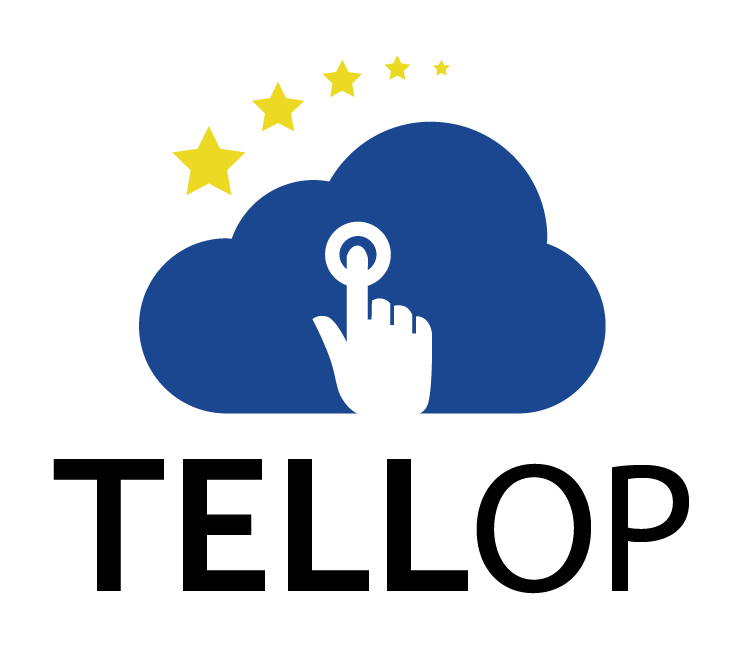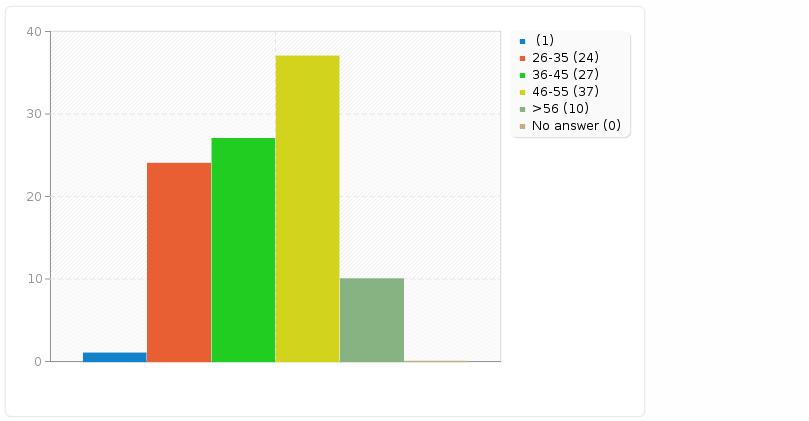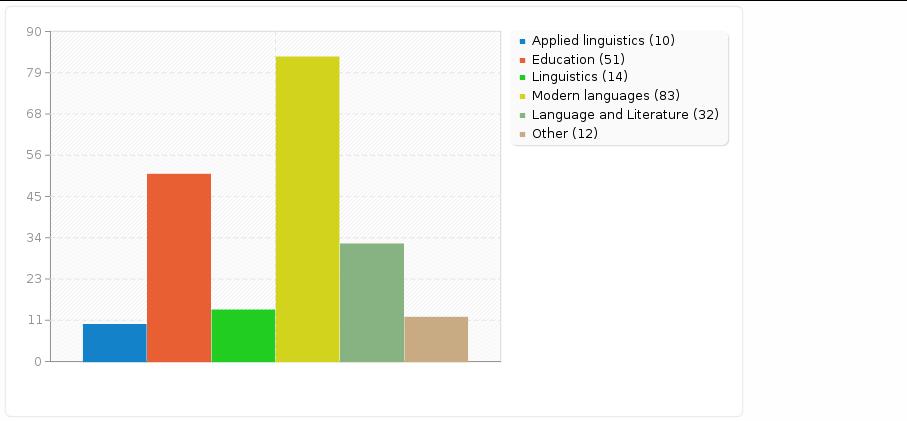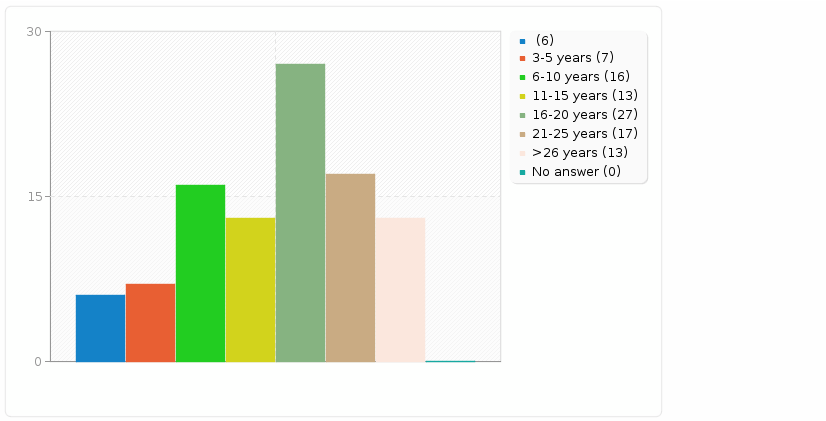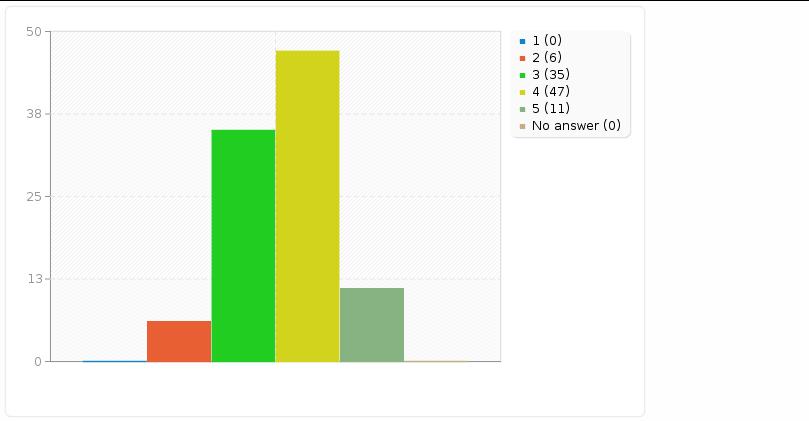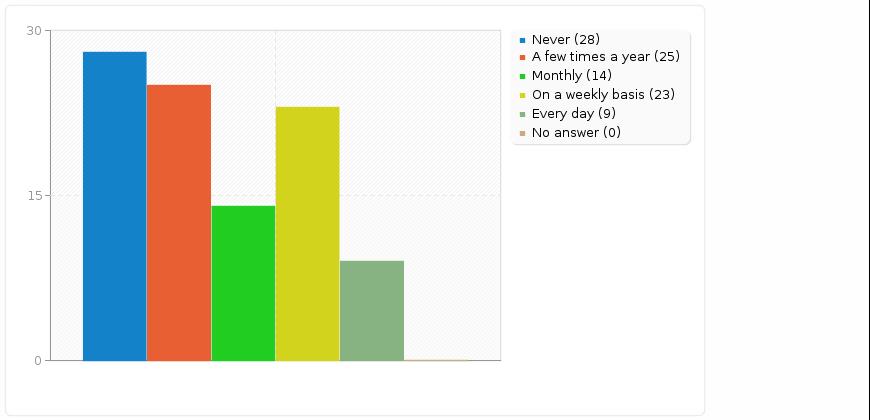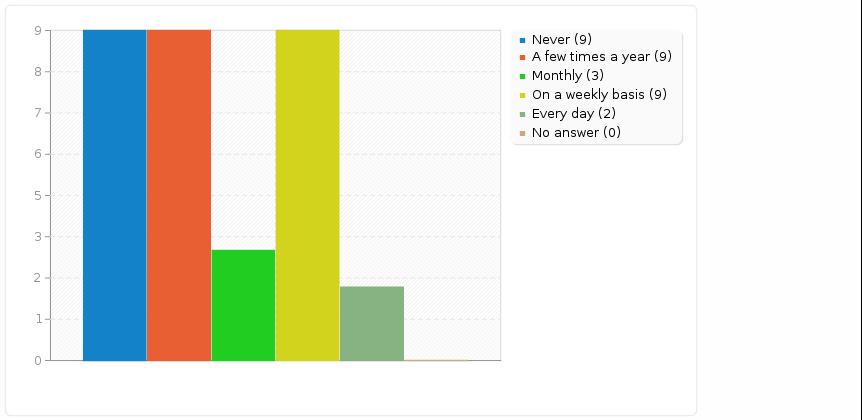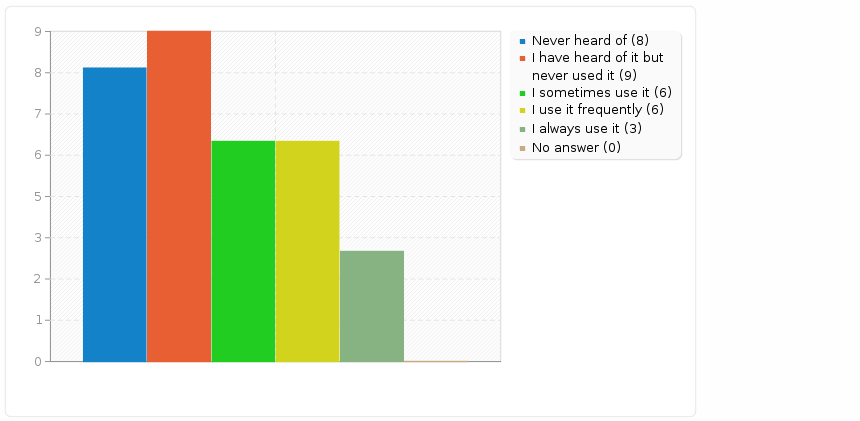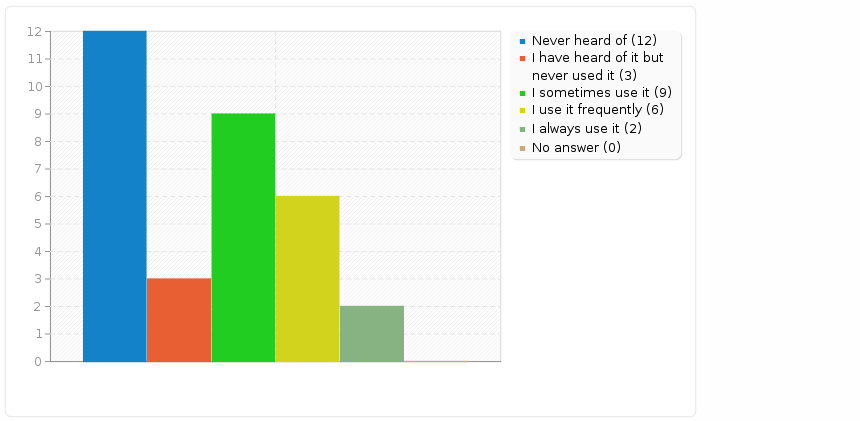Introduction
The results for the TELL-OP survey, active from May 22nd to June 30th, show a general participation of 1170 surveyed people, of which 690 have completed all the required fields in the questionnaire. The number of participants from the UK who responded to the survey was 99, i.e. 14.35 % of the total who responded.
The survey is composed of three main blocks: Block A deals with the personal data of the subject, with questions related to age, gender, education, etc. Block B deals with questions related to technology and mobile devices and Block C deals with the knowledge the participants have on open educational resources (OER) and its different tools.
BLOCK A: Personal Data
Results from Block A show that participants were predominantly women (79.80%); the most common age group among the subjects is 46-55 years old (37.37%), followed by 36-45 (27.27%), 26-35 (24.24%) and finally the subjects over 56 years old (10.10%).
Figure 1 – Age group of the participants
The most common academic qualifications the subjects possess are BA (39.39%) and MA (39.39%), while 7.07% of the participants have a PhD. When asking for their previous training background, the majority of the participants answered Modern Language (83.84%), followed by Education (51.52%) and Languages and Literature (32.32%). Regarding the years of experience in teaching, 27 participants (27.27%) had 16-20 years of experience and 17 (17.17%) had 21-25 years of experience.
Figure 2 – Previous training Background of the participants
Figure 3 – Years of experience in teaching of the participants
The vast majority of the surveyed people work in a secondary school institution 56 (56.57%), whilst 27 (27.27%) worked in a higher education institution. French as a foreign language was taught by 32 (32.32%) participants, whilst 15 (15.15%) taught German as a foreign language.
BLOCK B: Technology & Mobile Devices
The number of students who have access to WiFi in their institutions is significantly higher (87.88%) than the ones who do not have it (12.12%). 68 participants (68.69%) indicated that their institution promoted the use of mobile devices in the teaching context, which is someone surprising given that the literature on the whole indicates that institutions (and in particular primary and secondary schools) do not encourage the use of mobiles in the classroom.
The results from the question related to whether the subject has received any training in the use of mobile devices from their respective institutions show that a significant number of participants have not received any training 65 (65.66%). When the participants were requested to evaluate their computer skills (1 being no knowledge about computers and 5 being perfect computer skills) 58.59% of the surveyed people answered either 4 or 5, and none considered having no idea about computers.
Figure 4 – Participants’ computer skills
Regarding which devices the subjects use in the teaching context, web services (73.74%) and teaching/learning online platforms (68.69%) are the most frequently used, followed by the schools’ computer labs (45.45%) and tablets (45.45%). Interestingly, only 3.03% of the subjects answered that they do not use any device in the classroom. However, when they were asked about the frequency with which they use mobile devices in their language teaching, 28.28% said “never”, followed closely by “a few times a year” (25.25%). Only 9.09% used mobile devices every day.
Figure 5 – Participants’ frequency of use of mobile devices in language teaching
The last question in Block B is related to the frequency with which the participants think their students use mobile devices for their language learning, and the results show that most of the subjects answered “on a weekly basis” (33.3%) and “every day” (20.20%).
BLOCK C: Open Educational Resources
Block C’s first question asked the participants if they were familiar with Open Educational Resources (OER). The results show that most of the subjects were not familiar with OER (67.68%), while only 24.24% were familiar with them; 8.08% had heard of them, but never used them. As the following question (“Are you interested in knowing more about OER?”) was not mandatory, 13.13% chose not to answer; however, only four people (4.04%) said “no” to knowing more about OER, while 82.83% of the subjects said “yes”.
The participants were asked about the frequency with which they use OER, 9 (28.12%) said a few times a year and 9 (28.12%) said they used them on a weekly basis, 9 (2812%) said they never used them.
Figure 6 – Participants’ frequency of use of OER
The results of the frequency of use of OER in the context of language teaching show indicated that 11 (34.38%) never used them, 7 (21.88%) used them a few times a year, 5 (15.62%) used them on a monthly basis, and 7 (21.88%) on a weekly basis. Few subjects use OER in the classroom every day (76.25%).
The following group of questions is related to the familiarity of the participant with certain technologies. They were asked about their familiarity with the following technologies: Language Learning Apps, online dictionaries, online collocation dictionaries, text-to-speech technologies, text summarization, wordnet, visual representation of word clusters, automated word lists and frequency counts, lemmatisers, automated part of speech tagging, vocabulary profiling, spell checkers, text density/readability index, L1 corpora, specialized corpora/lexical databases, learner corpora, online corpus management tools. While in most of the different technologies represented in the question the predominant answer is “never heard of” or “I have heard of but never used it”, tools such as online dictionaries do have a high relevance among the participants (56.25% for “I use it frequently” and 34.38% for “I always use it”). In terms of Online collocation dictionaries or databases (18.75%) participants stated “I use it frequently” and 6.25% for “I always use it”. The only case with more or less even answers is the spell checkers tools, whose results show that 25.00% of the subjects have heard but never used it and 18.75% use it frequently.
Figure 7 – Familiarity of the participants with Spell checker tools
In terms of how often they use technologies in their language teaching, 37.50% stated they never used them, 18.75% said they used them a few times a year, 18.75% stated that they used them on a monthly bases, and 25.00% indicated that they used them on a weekly basis.
Figure 8 – Frequency of use in teaching context of online collocation dictionaries or databases
General Overview
Looking at the data obtained, we could conclude that the access to mobile devices in education institutions is increasing, although the teachers lack the information and preparation necessary to fully embrace the benefits of mobile devices and OER. Most of the tools that could be useful to improve language teaching are generally unknown, and therefore underused, their benefits lost. The fact that the vast majority of the teachers surveyed show interest in knowing more about OER is indicative that more effort should be put in the spread of mobile devices and language learning technologies.
